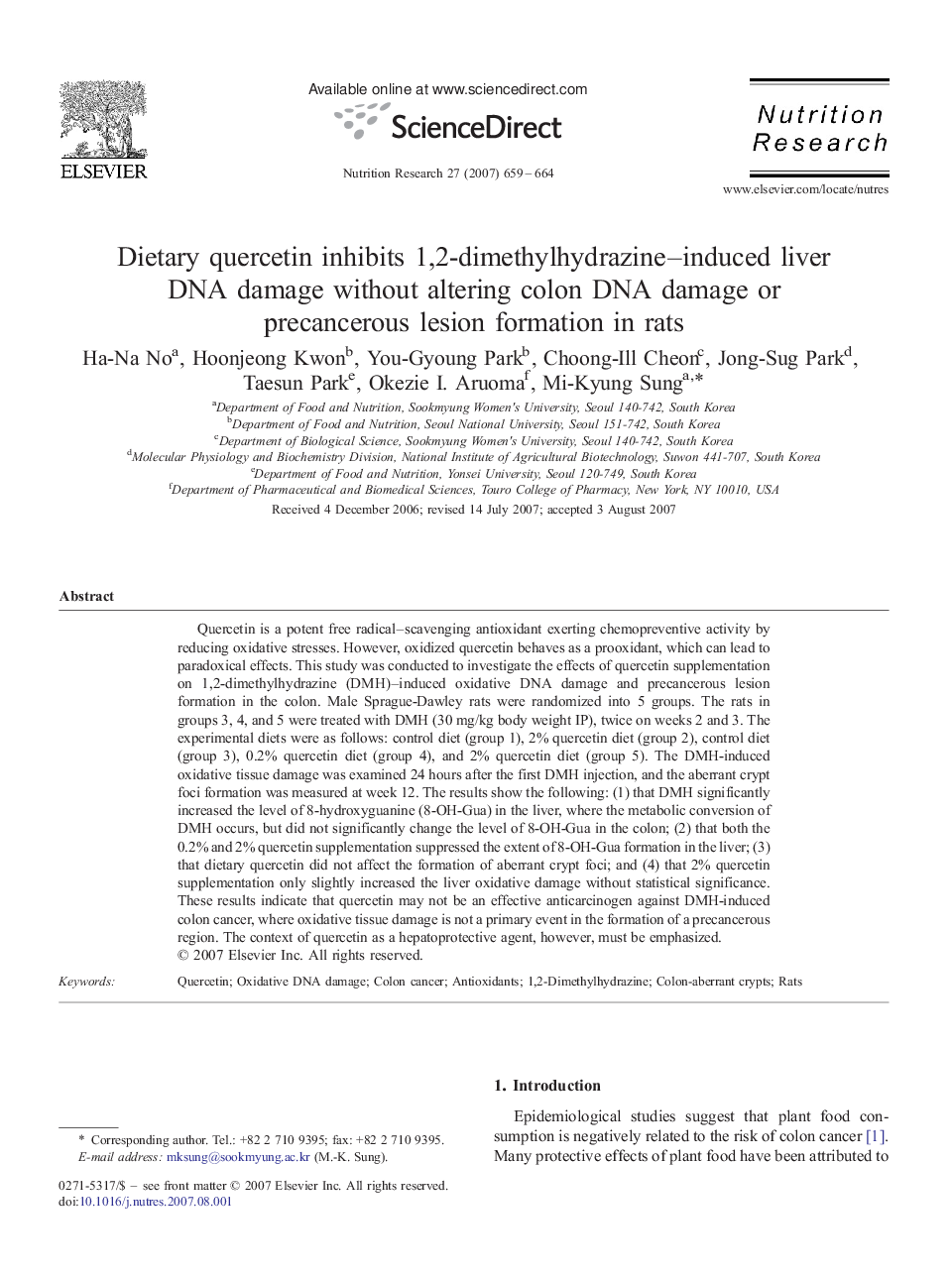| Article ID | Journal | Published Year | Pages | File Type |
|---|---|---|---|---|
| 2809990 | Nutrition Research | 2007 | 6 Pages |
Quercetin is a potent free radical–scavenging antioxidant exerting chemopreventive activity by reducing oxidative stresses. However, oxidized quercetin behaves as a prooxidant, which can lead to paradoxical effects. This study was conducted to investigate the effects of quercetin supplementation on 1,2-dimethylhydrazine (DMH)–induced oxidative DNA damage and precancerous lesion formation in the colon. Male Sprague-Dawley rats were randomized into 5 groups. The rats in groups 3, 4, and 5 were treated with DMH (30 mg/kg body weight IP), twice on weeks 2 and 3. The experimental diets were as follows: control diet (group 1), 2% quercetin diet (group 2), control diet (group 3), 0.2% quercetin diet (group 4), and 2% quercetin diet (group 5). The DMH-induced oxidative tissue damage was examined 24 hours after the first DMH injection, and the aberrant crypt foci formation was measured at week 12. The results show the following: (1) that DMH significantly increased the level of 8-hydroxyguanine (8-OH-Gua) in the liver, where the metabolic conversion of DMH occurs, but did not significantly change the level of 8-OH-Gua in the colon; (2) that both the 0.2% and 2% quercetin supplementation suppressed the extent of 8-OH-Gua formation in the liver; (3) that dietary quercetin did not affect the formation of aberrant crypt foci; and (4) that 2% quercetin supplementation only slightly increased the liver oxidative damage without statistical significance. These results indicate that quercetin may not be an effective anticarcinogen against DMH-induced colon cancer, where oxidative tissue damage is not a primary event in the formation of a precancerous region. The context of quercetin as a hepatoprotective agent, however, must be emphasized.
